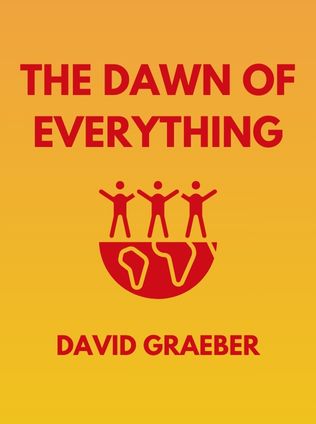
The Dawn of Everything
A New History of Humanity
By David Graeber
Published 10/2021
About the Author
David Graeber was a multifaceted scholar and activist whose work left an indelible mark on anthropology and social movements. Born in 1961, Graeber’s intellectual journey began at the University of Chicago, where he completed his PhD in anthropology. His early work focused on Madagascar, where he conducted extensive ethnographic research that informed his later critiques of capitalism and bureaucracy. Graeber was known for his radical ideas and his role as a public intellectual who engaged in political activism, most notably as a key figure in the Occupy Wall Street movement. His book "Debt: The First 5000 Years" became a bestseller and further solidified his reputation as a scholar who could connect deep academic insights with pressing contemporary issues.
David Wengrow, born in 1972, is a British archaeologist whose work has reshaped our understanding of early human societies. Educated at the University College London (UCL), where he now teaches, Wengrow has conducted archaeological fieldwork across Africa and the Middle East. His research has focused on the origins of civilizations, exploring how early human societies organized themselves and how these structures influenced later developments. Wengrow’s collaboration with Graeber on "The Dawn of Everything" was the culmination of a decade of correspondence and shared intellectual pursuits. Together, they sought to challenge the traditional narratives of human history and propose new ways of thinking about social evolution.
Main Idea
"The Dawn of Everything" is a groundbreaking work that challenges the traditional narrative of human history, particularly the idea that societies evolved in a linear progression from simple, egalitarian bands of hunter-gatherers to complex, hierarchical states. Graeber and Wengrow argue that this narrative is not only simplistic but also fundamentally incorrect. Through a detailed examination of anthropological and archaeological evidence, they demonstrate that human societies have always been far more diverse and complex than previously thought. The book calls into question the inevitability of inequality and encourages readers to imagine alternative ways of organizing society that prioritize freedom, autonomy, and equality.
At its core, "The Dawn of Everything" is an invitation to rethink our assumptions about the past and to consider how these assumptions shape our understanding of the present and future. The authors argue that the traditional narrative of social evolution has been used to justify inequality and oppression by presenting them as natural and inevitable outcomes of human progress. By challenging this narrative, Graeber and Wengrow open up new possibilities for imagining a more just and equitable world.
Table of Contents
- The Indigenous Critique: A Precursor to Enlightenment Values
- The Conventional Anthropological Narrative
- Challenging the Conventional Narrative
- Is Inequality Inevitable?
The Indigenous Critique: A Precursor to Enlightenment Values
Graeber and Wengrow begin their exploration by discussing what they call the "indigenous critique" of European culture, a set of ideas and criticisms articulated by indigenous peoples of North America during their interactions with European colonists in the late 1600s. These critiques, particularly those voiced by the Wendat leader Kandiaronk, challenged the very foundations of European social and political systems. Kandiaronk’s eloquent and insightful criticisms of monarchical rule, social hierarchies, and the accumulation of wealth were recorded and circulated widely in Europe, where they had a profound influence on Enlightenment thinkers.
The authors argue that many of the ideas we now associate with the European Enlightenment—such as equality, freedom, and reason—were directly inspired by these indigenous critiques. For instance, the Wendat people believed in the inherent equality of all individuals and rejected the notion that anyone could be born with the authority to dominate others. This was in stark contrast to the European belief in natural hierarchies and divine rights, which justified the power of kings and nobles. As Graeber and Wengrow note, "The Wendat and other tribes didn't believe anybody had the right to control anyone else," and this emphasis on reason and rational debate as the only legitimate form of persuasion significantly influenced Enlightenment thought.
Sign up for FREE and get access to 1,400+ books summaries.
You May Also Like
Freakonomics
A Rogue Economist Explores the Hidden Side of Everything
By Steven D. Levitt and Stephen J. Dubner



















